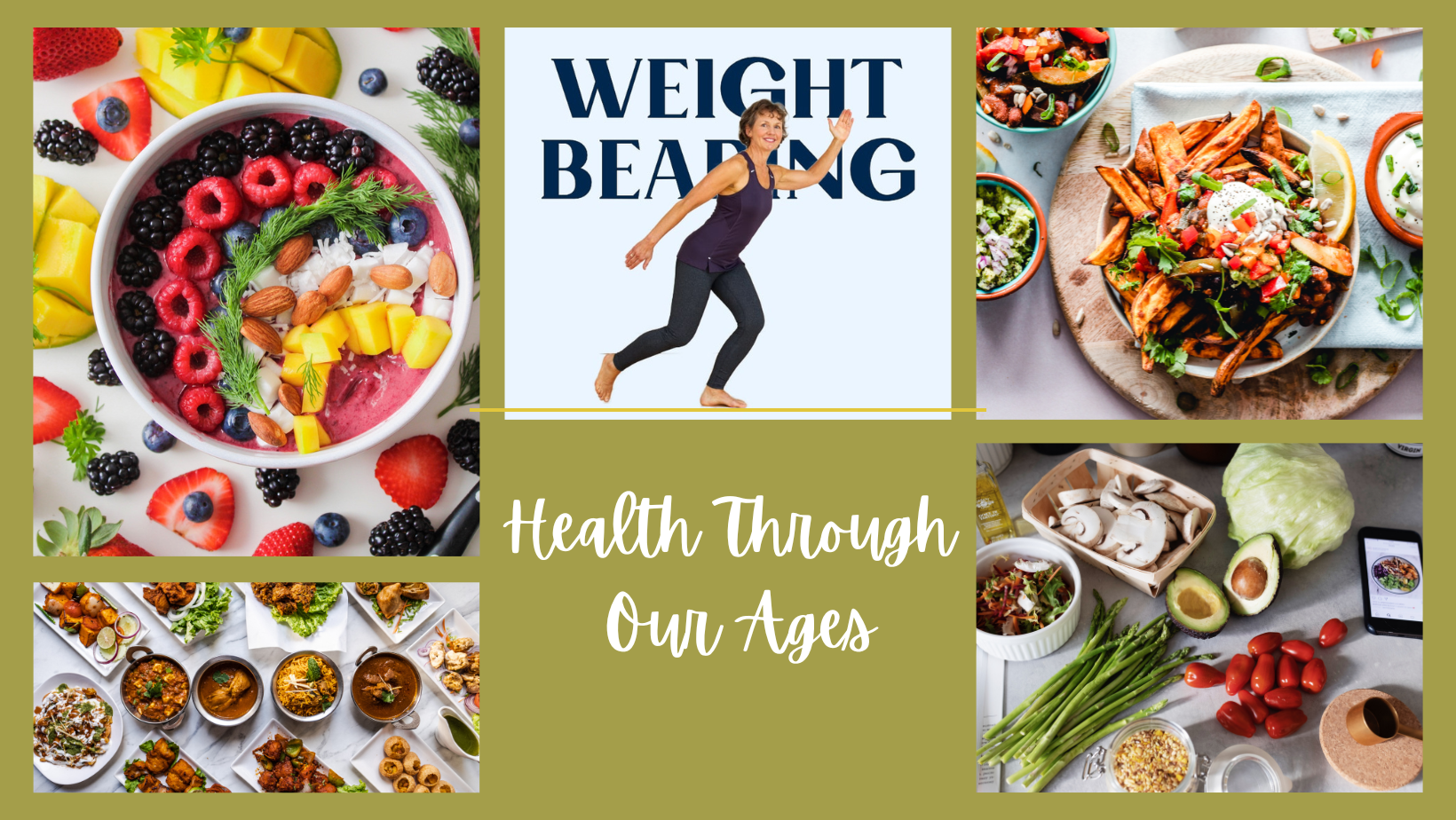Welcome to Health Through Our Ages!
Welcome to our blog! Stay up to date on how our habits should change as we progress through the aging process.

Stay tuned for updates!


How Much Protein Do We Need at Different Ages?
Protein is a vital macronutrient that plays a crucial role in building and repairing tissues, producing enzymes and hormones, and supporting overall growth and development. However, the amount of protein needed varies significantly across different life stages. Understanding these needs can help optimize health and wellness at every age. In this article, we’ll explore how much protein is required at various stages of life.
Infants and Toddlers (0-3 Years)
During the first few years of life, the body undergoes rapid growth and development. Protein is essential for building new tissues and supporting overall growth.
Infants (0-6 months): The recommended daily protein intake is about 1.52 grams per kilogram of body weight. This is typically met through breast milk or formula.
- Infants (7-12 months): The recommended intake is about 1.2 grams per kilogram. As solid foods are introduced, protein can come from sources like pureed meats and legumes.
- Toddlers (1-3 years): The requirement decreases to about 1.05 grams per kilogram. A variety of protein sources such as eggs, dairy, and lean meats can be included in their diet.
#### Children (4-13 Years)
As children grow, their protein needs continue to support their development, but the required amounts change as they age.
- **Children (4-8 years)**: They need approximately 0.95 grams per kilogram of body weight. A balanced diet including poultry, fish, beans, and nuts can help meet this requirement.
- **Children (9-13 years)**: The need slightly reduces to about 0.85 grams per kilogram. Encouraging a diverse diet with plenty of protein-rich foods is beneficial.
#### Adolescents (14-18 Years)
Adolescence is marked by growth spurts, increased muscle mass, and hormonal changes, all of which increase protein demands.
- **Adolescents (14-18 years)**: The recommended intake is about 0.85 grams per kilogram. Protein sources should be diverse, including lean meats, dairy, soy products, and legumes to support growth and physical development.
#### Adults (19-64 Years)
For adults, protein supports muscle maintenance, metabolism, and overall health.
- **Adults (19-64 years)**: The general recommendation is 0.8 grams per kilogram of body weight. However, needs may increase with higher levels of physical activity or specific health goals. Lean meats, fish, dairy, and plant-based proteins are excellent sources.
#### Older Adults (65+ Years)
As we age, maintaining muscle mass and function becomes crucial to prevent frailty and support active living.
- **Older Adults (65+ years)**: The requirement may increase to about 1.0 to 1.2 grams per kilogram to counteract muscle loss associated with aging. Protein-rich foods, including dairy, eggs, and plant-based options, should be included in daily meals.
#### Special Considerations
- **Athletes and Active Individuals**: Those engaging in intense physical activity may require more protein to support muscle repair and growth, with recommendations often ranging from 1.2 to 2.0 grams per kilogram.
- **Pregnancy and Lactation**: Protein needs increase during pregnancy and breastfeeding to support the mother and developing baby. Pregnant women are advised to increase their intake by about 25 grams per day.
- **Vegetarians and Vegans**: It may require more careful planning to meet protein needs, ensuring a combination of plant-based proteins to provide all essential amino acids.
#### Conclusion
Protein needs vary widely across different ages and life stages. While the general guidelines provide a solid foundation, individual requirements may vary based on activity level, health conditions, and dietary preferences. Consulting with a healthcare provider or nutritionist can help tailor protein intake to meet personal health goals and ensure nutritional needs are met at every stage of life.
Navigating Protein Needs: Optimizing Nutrition for Men and Women Over 40
As we age, our bodies undergo a myriad of changes that can significantly impact our nutritional needs. For individuals over 40, these changes often necessitate a reassessment of dietary habits, especially when it comes to protein intake. Proteins play a crucial role in maintaining muscle mass, supporting metabolism, and promoting overall health. However, the protein needs can vary significantly between men and women over 40 due to differences in physiology, muscle mass, hormonal changes, and lifestyle.
## Why Protein Matters After 40
Before diving into the differences between protein needs for men and women, it's essential to understand why protein is such a critical component of a healthy diet as we age. Protein supports:
- **Muscle Maintenance and Growth**: As we age, we naturally lose muscle mass—a process known as sarcopenia. Protein helps in preserving muscle tissue and can aid in muscle repair and growth.
- **Metabolism**: Protein-rich diets can help boost metabolism, which often slows down with age.
- **Bone Health**: Adequate protein intake is important for bone health, reducing the risk of fractures and osteoporosis.
- **Satiety and Weight Management**: Protein promotes feelings of fullness, which can be beneficial in managing weight, a common concern for many over 40.
## Protein Needs for Men Over 40
Men typically have a higher muscle mass compared to women, which can influence their protein requirements. Here's what men over 40 should consider:
- **Increased Metabolism**: With a naturally higher metabolism and larger muscle mass, men may require more protein to maintain muscle and support metabolic functions.
- **Protein Sources**: Lean meats, fish, eggs, dairy products, and plant-based proteins like beans and lentils are excellent sources. It's important to focus on high-quality proteins that are low in saturated fats.
- **Portion Control**: While protein is essential, portion control is crucial to avoid excessive calorie intake, which can lead to weight gain.
- **Strength Training**: Engaging in regular strength training can further boost the benefits of protein by stimulating muscle growth and maintenance.
## Protein Needs for Women Over 40
Women experience unique physiological changes around their 40s, particularly related to menopause, which can affect their protein needs:
- **Hormonal Changes**: Menopause leads to a decrease in estrogen levels, which can result in muscle loss and a slower metabolism. Adequate protein intake can help mitigate these effects.
- **Protein Sources**: Women should focus on a variety of protein sources, including lean meats, poultry, fish, dairy, and plant-based options like tofu, tempeh, and quinoa, to ensure they get all essential amino acids.
- **Bone Health**: Since women are at a higher risk of osteoporosis, combining protein with calcium and vitamin D intake is essential for bone health.
- **Weight Management**: Protein can help manage weight by promoting satiety and reducing the likelihood of overeating.
## General Tips for Protein Intake Over 40
Regardless of gender, there are some universal tips to optimize protein intake for those over 40:
- **Spread Intake Throughout the Day**: Instead of consuming a large amount of protein in one meal, spread it out across all meals to improve absorption and utilization.
- **Focus on Quality**: Choose high-quality protein sources with essential amino acids. This includes lean meats, fish, eggs, dairy, legumes, nuts, and seeds.
- **Stay Active**: Combine protein intake with regular physical activity, including resistance and strength training, to enhance muscle health and metabolism.
- **Consult a Professional**: Consider consulting a nutritionist or dietitian to tailor a protein plan that suits your individual health needs and lifestyle.
In conclusion, while men and women over 40 have unique protein requirements influenced by physiological and hormonal differences, both can benefit greatly from a diet rich in high-quality proteins. By understanding these needs and making informed dietary choices, individuals can support their health, vitality, and longevity well into their later years.